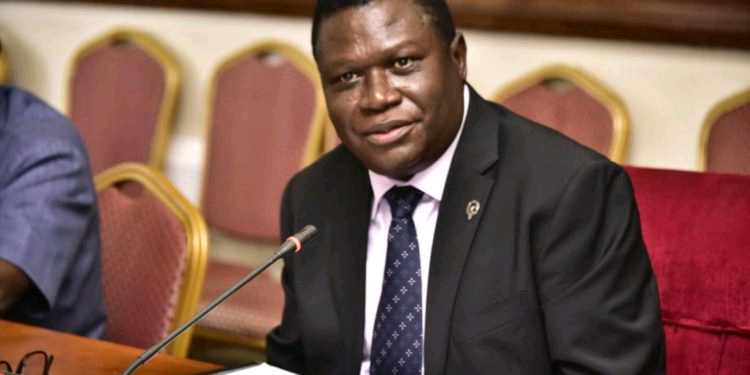Is Norbert Mao Sabotaging the Democratic Party, and Can Its Members Save It?
There are some of the questions of whether Norbert Mao, President General of Uganda’s Democratic Party (DP), is on a mission to destroy the party—and whether its members are prepared to rescue it—has ignited fierce debate within Uganda’s political sphere as of March 31, 2025. While no concrete evidence proves Mao intends to dismantle DP, his controversial actions, particularly the July 2022 cooperation agreement with the ruling National Resistance Movement (NRM), have fractured the party and fueled accusations of betrayal from within its ranks.
Mao, a seasoned lawyer and politician, has led DP since 2010, guiding it through a challenging era marked by internal divisions and electoral struggles. His decision to align with President Yoweri Museveni’s NRM, followed by his appointment as Minister of Justice and Constitutional Affairs, stunned many in the opposition. Critics, including MPs Richard Sebamala, Richard Lumu and Medard Sseggona, argue that Mao bypassed party organs, committing DP to support NRM’s agenda without broader consultation. This move, they contend, compromises DP’s historic role as an opposition stalwart, dating back to its founding in 1954.
A Constitutional Court case challenging the agreement remains unresolved, while the October 2024 resignation of DP’s legal advisor, Erias Nalukoola, over ethical concerns underscores the depth of the rift.
Suspicion of Mao’s leadership isn’t a recent phenomenon. As early as 2019, the Uganda Young Democrats accused him of stifling the party’s youth wing and centralizing power, claims that resurfaced during the 2020 defection of key figures like Michael Mabikke to the National Unity Platform (NUP). DP’s electoral fortunes have waned under Mao—its peak of 16 MPs in 2016 has since dwindled—and some, including veteran commentator Ssemujju Nganda, have long speculated that Museveni propped up Mao to neuter DP as a viable threat. The 2022 NRM pact, seen by detractors as a final blow, has only intensified these theories.
So, is Mao deliberately sabotaging DP? His critics point to a pattern: sidelining dissent, cozying up to the ruling party, and failing to rejuvenate DP’s grassroots base. Yet, Mao defends his actions as strategic pragmatism. In a December 2024 speech, he insisted he’d never abandon DP, framing the NRM deal as a way to secure relevance in a political landscape dominated by Museveni’s machine. Supporters argue that, with NUP siphoning off DP’s urban base, Mao’s approach offers a lifeline, even if it’s a bitter pill for purists.
The real question is whether DP members can—or will—rescue the party. A defiant faction, led by figures like Sebamala l, Lumu, Bayiga Lulume, and emerging voices like Richard Sebamala, has mobilized to challenge Mao. They’ve called for his resignation, pushed for internal elections, and sought to rebuild DP’s structures ahead of the 2026 polls. Social media posts on X in early 2025 reflect growing momentum, with hashtags like #SaveDP gaining traction among disillusioned members. Legal battles, such as the court case against the NRM agreement, signal their resolve to wrest control from Mao’s grip.
However, unity remains elusive. DP’s history of factionalism—evident in the 1980s split between Paul Ssemogerere and Robert Kitariko, and later the 2000s rise of the DP Bloc—casts a long shadow. Mao retains a loyal base that views his NRM alignment as a necessary compromise, and his ministerial role gives him leverage to weather the storm. Grassroots members, particularly in rural Buganda, appear divided, with some nostalgic for DP’s past glory and others resigned to its diminished status.
The fight for DP’s future is a high-stakes gamble. If Mao’s opponents succeed in ousting him, they’ll need to restore credibility and counter NUP’s dominance—a daunting task. If Mao prevails, DP risks becoming a shadow of itself, a junior partner to NRM rather than a beacon of opposition.
As 2026 looms, the party’s rescue depends on whether its members can bridge their divides and reclaim its soul—or if Mao’s vision, divisive as it is, will define its twilight years. For now, DP hangs in the balance, its fate uncertain.
Do you have a story in your community or an opinion to share with us: Email us at editorial@watchdoguganda.com












